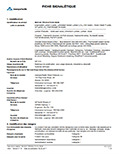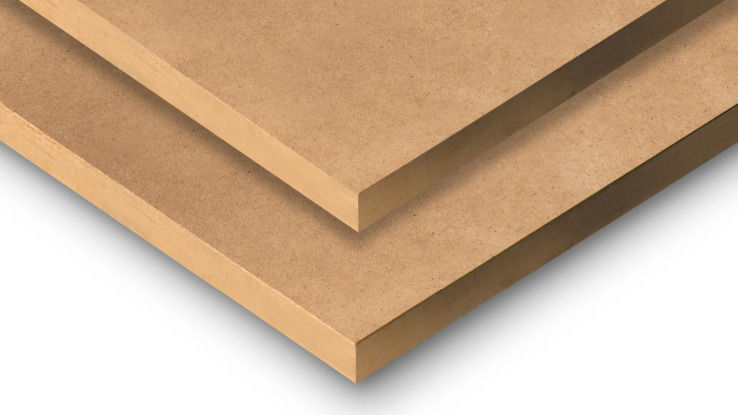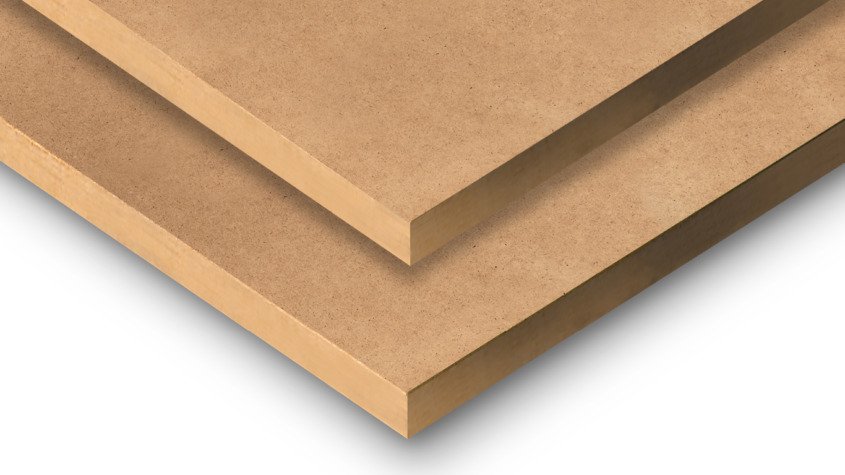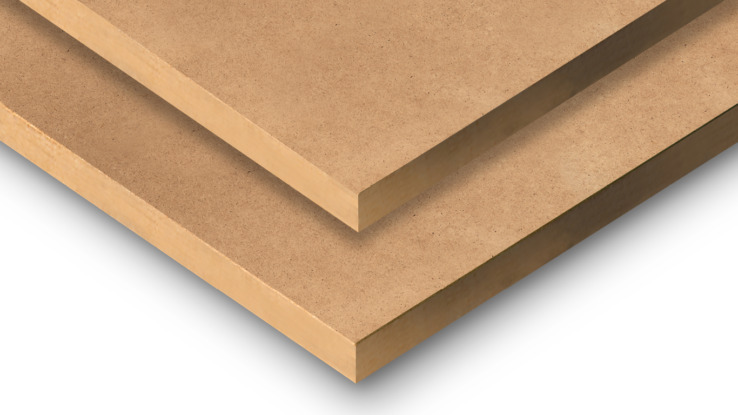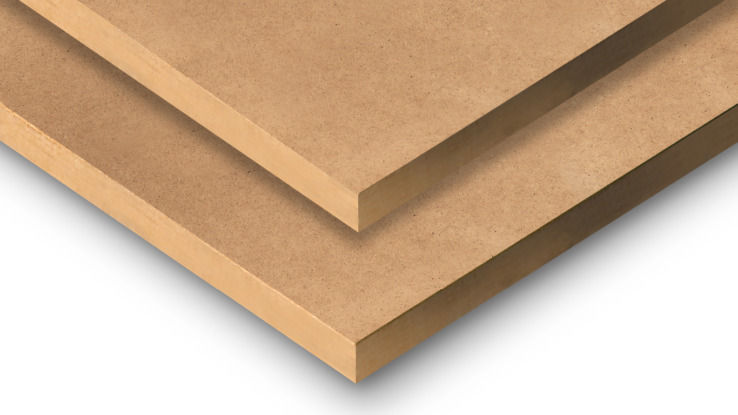
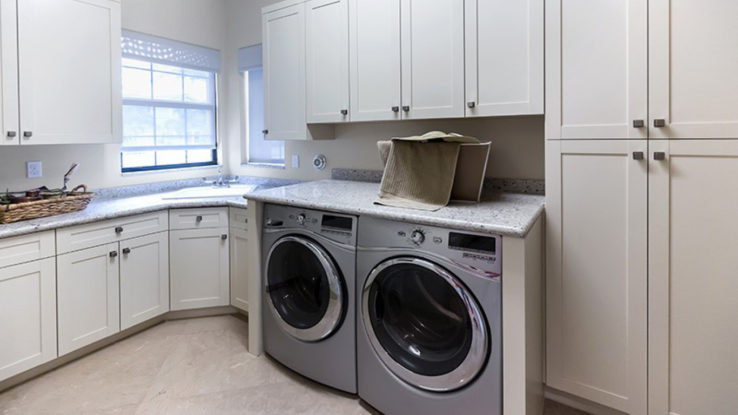

Product Details
UltraStock® products provide optimized panel solutions for a wide selection of performance characteristics and delivers test-proven thickness-swell resistance. Engineered to resist elevated moisture and humidity, UltraStock® MR meets the thickness swell and bond integrity criteria required for the MR 50 designation. It’s more proof that nobody treats you better than Georgia-Pacific.
Product Specifications
DIMENSIONS
| Thicknesses | 1/4” – 1-1/2” |
| Widths | To 5’ |
| Lengths | To 16’ |
PHYSICAL PROPERTIES
| Min Panel Averages (1) | 1/4” to <1/2” | 1/2” to 3/4” | 3/4” |
| MOR-Modulus of Rupture (psi) | 4050 | 4050 | 4050 |
| MOE-Modulus of Elasticity (kpsi) | 405 | 405 | 405 |
| IB-Internal Bond (psi) | 130 | 120 | 110 |
| Face Screw Holding Capacity (lbs) | 250 | 270 | 270 |
| Edge Screw Holding Capacity(lbs) (2) | NA | 250 | 250 |
| 24-Hour Thickness Swell | <0.0325″ | <5.5% | <5.5% |
1 One-panel minimum average per ANSI 208.2
2 Not applicable for thinner than 5/8”
TOLERANCES
| Length & Width | ± 1/16” per panel |
| Squareness | ± 1/64” per ft. of length |
| Straightness | ± 1/64” per ft. of length |
| Thickness (within panel) | ± 0.005” |
| Thickness (panel to panel) | ± 0.005” |
ENVIRONMENTAL CREDITS
| Recycled Content (MR credit 4) | Awards 1 or 2 points for using products with recycled content that constitute at least 10% or 20%, based on cost, of the total value of project materials. |
| Regional Materials (MR credit 5) | Awards 1 or 2 points for using materials on a project that are extracted and manufactured within 500 miles that constitute at least 10% or 20%, based on cost, of the total value of project materials. |
| Environmental Quality (EQ credit 4.4) | Requires composite wood products used on project to demonstrate documented compliance with California Air Resources Board ATCM formaldehyde requirements for ultra-low-emitting formaldehyde (ULEF) resins or no-added-formaldehyde (NAF) resins. |
| Low-VOC Emitting Materials (G2.9) | Specifies architects to select low-VOC emitting materials |
| Pre-consumer Recycled Content (604.1(2)) | Use recycled content products in major areas such as walls, floor, insulation and roofing. |
| FSC® Certification (606.2(3)) | Wood or wood-based products available that are certified by Forest Stewardship Council™. |
| Other Certification (606.2(6)) | Wood-based components certified in accordance to CPA ECC 4-19. |
| Low Formaldehyde/VOC Emissions (901.4(a)) | In compliance with ANSI A208.1. |
| Low Formaldehyde/VOC Emissions (901.4(c)) | In compliance with CPA ECC 4-19. |
| Low Formaldehyde/VOC Emissions (901.4(d)) | Composite wood contains no urea formaldehyde. |
CERTIFICATIONS
| ECC CERTIFICATION | UltraStock® products produced in the Georgia-Pacific facility in Mt. Jewett, Pennsylvania, have been awarded the Composite Panel Association (CPA) Eco-Certified Composite (ECC) grademark which verifies compliance with the CPA 4-19 ECC Sustainability Standard, the California Air Resources Board (CARB) Airborne Toxic Control Measure (ATCM) 93120 and the EPA TSCA Title VI rule. |
| FSC® CERTIFICATION | UltraStock® that is certified to conform to the requirements of Forest Stewardship Council® standards for FSC Mix Chain of Custody and Controlled Wood manufacturing is available by special order. |
| EPA TSCA, TITLE VI | All UltraStock® is CARB and EPA TSCA Title VI compliant. This product contains no added formaldehyde. |
| MR50 Designation | Based on ANSI A208.2 section 3.6, the moisture-resistance test criteria necessary to obtain an MR50 board designation are: – Product samples must maintain the 24-hour thickness swell test value of 5.5% or less – Samples must maintain an advanced bond integrity value measured as 50% of the original MOR specification for that product grade after accelerated aging. – The accelerated aging process subjects board samples to six complete cycles that include: 1. Immersion in water at 120° ±3° F for 1 hour 2. Exposure to steam and water vapor at 200° ±5° F for 3 hours 3. Freezing at 10° ±5° F for 20 hours 4. Heating to 210° ±3° F in dry air for 3 hours 5. Exposure again to steam and water vapor at 200° ±5° F for 3 hours 6. Heating to 210° ±3° F in dry air for 18 hours – After the six cycles are completed, the specimens shall be conditioned at 68° ±6° F and a relative humidity of 65 ±2% for at least 48 hours before the MOR testing. |


Resources
Related Products
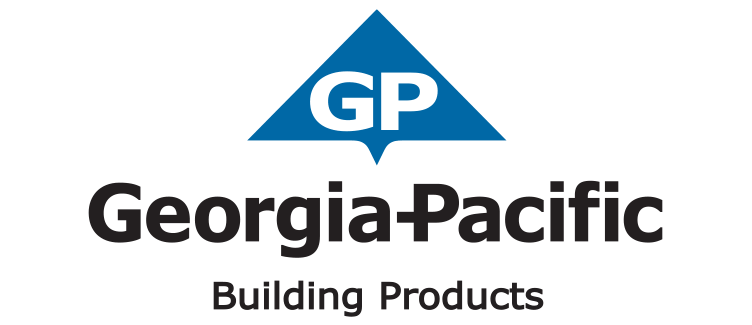
Newsletter Sign Up
Subscribe for the latest news and insights.

